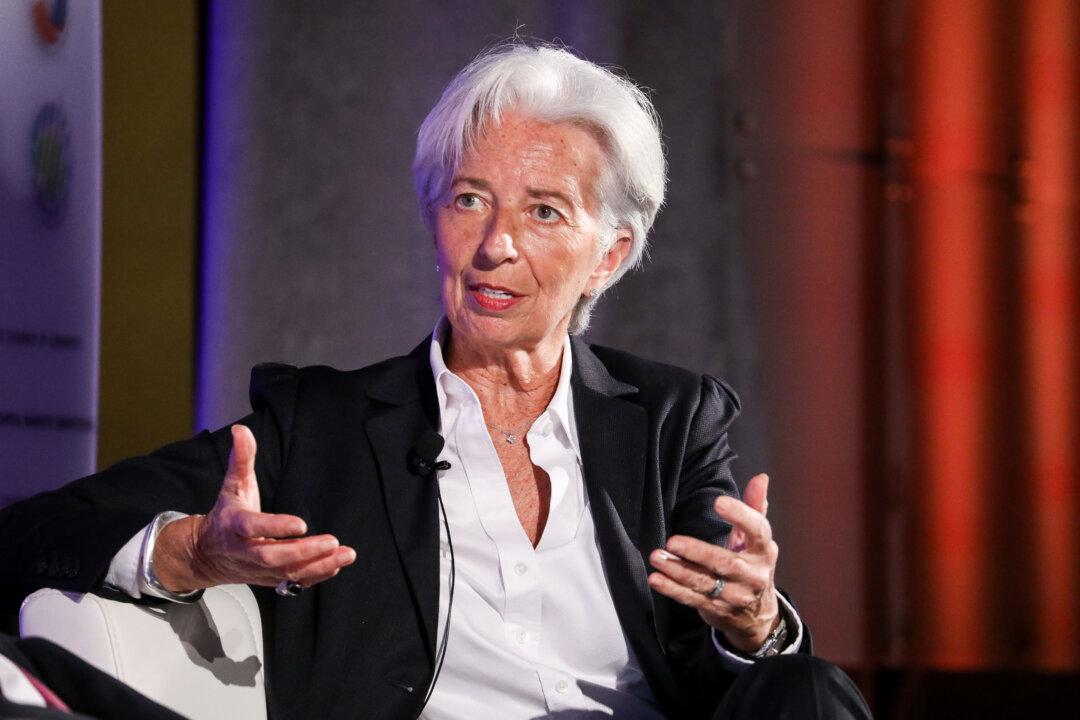WASHINGTON—While there will be no recession in the near term, the global economy is at “a delicate moment,” according to International Monetary Fund Managing Director Christine Lagarde.
Speaking at the U.S. Chamber of Commerce, Lagarde announced that the International Monetary Fund (IMF) would be releasing new global growth forecasts ahead of its spring meeting in Washington next week.





